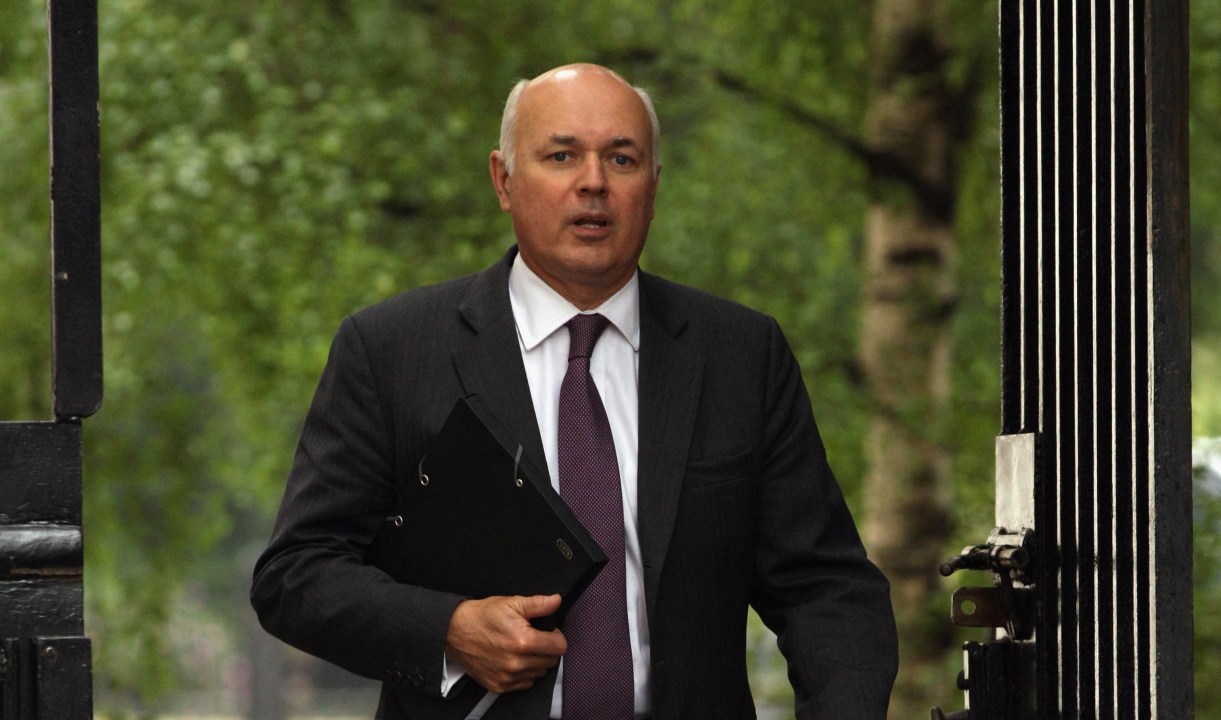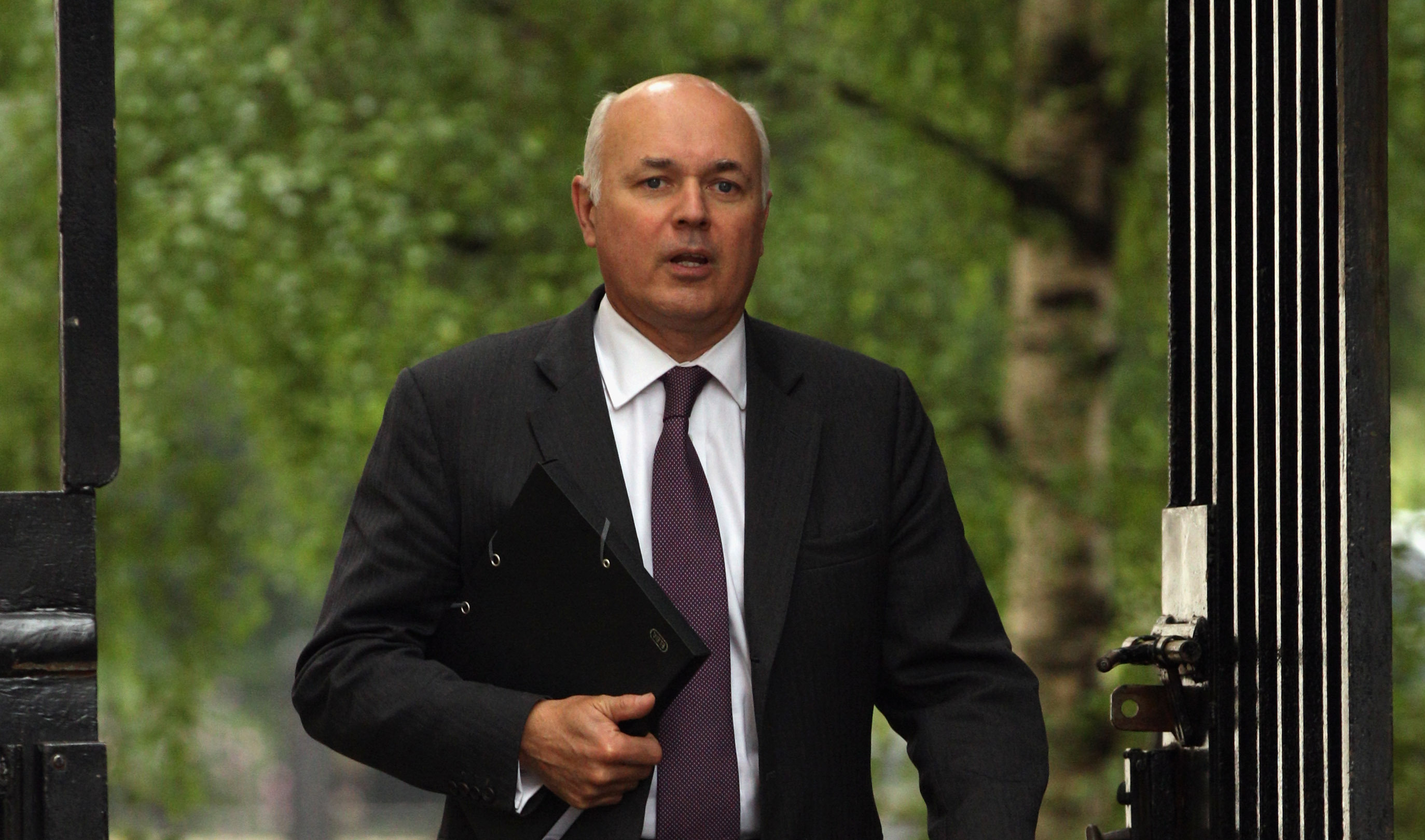 Here’s me about to go on holiday, and the welfare wars seem to be opening up. Neil
O’Brien has a piece on it over at the Telegraph website. And Hopi Sen, one of the better leftie
bloggers, has written a response to my post yesterday. Partly, he wants to stir: it’s not so much that the
Treasury want to block IDS’s reforms, he says, but rather that they are following Osborne’s orders to reduce the deficit. And so it’s one part of the government at war with another. By contrast,
the Whitehall wars I outlined are hangovers from the Brown days, where the Treasury set policy for all other departments and its instinctive reaction was to destroy any proposal it did not come up
with. When Milburn proposed Foundation Hospitals, for example, the Treasury commissioned a 50-page report on why they were ‘unaffordable’ – the word for any project it dislikes – and
Brown personally dropped them off to each member of the Cabinet. Hopi Sen seems to think that this is what normal governments do.
Here’s me about to go on holiday, and the welfare wars seem to be opening up. Neil
O’Brien has a piece on it over at the Telegraph website. And Hopi Sen, one of the better leftie
bloggers, has written a response to my post yesterday. Partly, he wants to stir: it’s not so much that the
Treasury want to block IDS’s reforms, he says, but rather that they are following Osborne’s orders to reduce the deficit. And so it’s one part of the government at war with another. By contrast,
the Whitehall wars I outlined are hangovers from the Brown days, where the Treasury set policy for all other departments and its instinctive reaction was to destroy any proposal it did not come up
with. When Milburn proposed Foundation Hospitals, for example, the Treasury commissioned a 50-page report on why they were ‘unaffordable’ – the word for any project it dislikes – and
Brown personally dropped them off to each member of the Cabinet. Hopi Sen seems to think that this is what normal governments do.
I really hate to disappoint him, but there is no Cabinet rift here – certainly not that I’m aware of. IDS proposed his Universal Benefit back in September last year, George Osborne knows the policy very well and it was Osborne who was most supportive of IDS being sent into the DWP. They really don’t disagree. David Cameron has been very supportive, and was so in his interview from India last week. Oliver Letwin, too, knows about Whitehall trying to kill ideas it doesn’t like: his first experience of politics was as a SpAd to Keith Joseph who, in 1980, was trying to deliver what’s now called the Gove school reform agenda. Cameron’s instinct is not to come down with furious anger on the Treasury. He just wants them – and the other warring departments – to calm down and realise a simple fact.
The old days – where No10 and the Treasury tried to pull the strings of government and treated Cabinet members like puppets – are over. Very much over. No10 does not try to control everything, the Chancellor no longer seeks to stop everything. The whole government is of a fundamentally different character. The action is happening on other departments. Cameron has found ministers he trusts, and asked them to get on with it. It’s called Cabinet government, and it was the norm until 1997. It has just made a comeback. Ministerial initiatives (police reform, health reform, welfare reform, school reform) are welcomed, not crushed, by a Prime Minister and a Chancellor who have a shared objective. Cameron knows it will take a while for Whitehall to understand this, and stop their old sectarian battles. But Osborne is not going to play the role of jealous, controlling Chancellor simply because that fits a 13-year-old script.
To two more of Hopi Sen’s points. He says the last budget changed tax credits to further disincentivise work. I don’t defend it, and neither did Coffee House when it mentioned the disincentives at the time: the tax credit changes were to manipulate an income
distribution graph. It’s the old Labour trick of making policies simply for the benefit of Robert Chote and the people who do the IFS graphs. Some £3bn it cost the taxpayer, all in a (failed)
attempt for the IFS to call the budget “progressive.” But let’s finish on a happier note:
I can’t speak for IDS. But I can say that if this costs an extra £3 billion, then I’d be up for it. I can’t see how we justify an extra £3bn extra in overseas aid – as part of some national morality drive – and yet say we can’t afford £3bn to abolish the system which keeps our own poor down. This is primarily about saving lives, not money. Although any system that makes it worth the while of British poor to take jobs rather than welfare will reduce costs in the long run. I can understand that people on the left might have a fixed idea of their class enemy: swivel-eyed, maniacal about cutting tax, etc. But, in fact, conservative reformers and Labour reformers have a shared agenda and differ only slightly about how to achieve it. Gove wants to deliver what Blair dangled in the introduction to the 2005 Education White Paper. Jim Murphy and John Hutton pioneered the welfare reforms which IDS is developing now. Nick Clegg is one of IDS’ biggest allies in persuading the Treasury to cut tax on low-paid jobs. There is no sectarian battle here, that I can see.“If Tories like Fraser and IDS come to terms with the fact that their plans will increase state spending, and pledge not to make a pact with the Treasury not to balance the welfare budget on the back of the poor, they will find the Labour party more than willing to ally with them. Want to do a deal?”
I’d love for there to be a bipartisan agreement on welfare reform. It’s always more fun to try to see things through the prism of warfare, but the main players – IDS, Cameron, Osborne, Clegg – are in broad agreement. They just need the government machine to accept it.








Comments